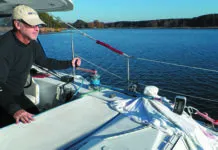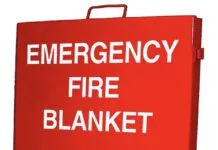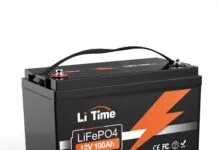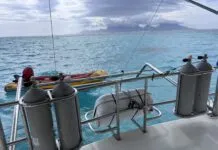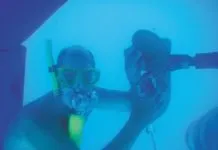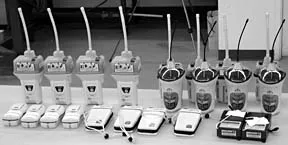
Responding to a recent independent test, West Marine has announced that it will provide a full refund or exchange of McMurdo’s Fastfind Plus personal locator beacon (PLB) with built-in GPS, as well as its Precision 406 GPS EPIRB.
“The results speak for themselves,” said Chuck Hawley, vice-president of product development at West Marine, a co-sponsor of the test. “We support product testing, and helping the industry identify problems.”
Equipped To Survive, a non-profit foundation run by Doug Ritter (a contributing editor to Practical Sailor and its sister publication Powerboat Reports), conducted the tests, which revealed a marked difference in self-locating performance among the integral GPS beacons tested. Boat/US and West Marine funded and supported the testing, but Equipped to Survive drew up the testing protocol. Test results indicate that all the beacons provided the minimum acceptable level of distress alerting expected from non-location 406 MHz emergency beacons. Also included in the test were ACR’s GlobalFix 406 EPIRB (with integral GPS) and RapidFix 406 EPIRB with GPS interface, and TechTests Ltd.’s 500-27 406 GPS PLB.
“The McMurdo Fastfind 406 PLB and McMurdo Precision 406 GPS EPIRB generally failed to provide location information except under ideal conditions,” wrote Ritter, in a summary of the test results. “These beacons failed to provide a location unless the sky view was virtually unimpeded, and there was little or no movement of the beacon due to the motion of the water.” According to Ritter, the ACR GlobalFix 406 EPIRB and Techtest Model 500-27 PLB generally provided location information within a few minutes from activation under all but the most onerous scenarios.
McMurdo officials have reviewed the test results but say they don’t agree with them. “We test 100 percent of our beacons, and if they don’t acquire a GPS fix they are rejected—period,” said James Chandler, McMurdo vice-president of sales in the US. “We want to get to the bottom of this.”
Chandler says McMurdo, which is based in England, plans to conduct its own tests in the U.S. under similar circumstances. Though he says McMurdo will suspend the sale of both products in question pending the results of that test, the company will not issue a voluntary Coast Guard recall. “If we find there is an issue after our own testing, then yes, we would look at a recall,” said Chandler.
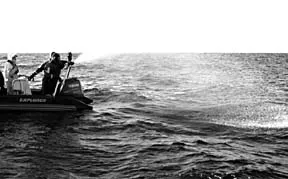
Chandler said McMurdo plans to include Ritter in its testing. “We welcome his input. We want to come up with an actual solution to this, and he has a lot of experience.”
PLBs became available to the public in July of 2003. They are small, manually operated emergency beacons providing essentially the same alerting capabilities as 406 MHz EPIRBs. Prices start at about $600.
The Equipped to Survive test was set up after a March 2003 U.S. Coast Guard test off Key West, FL, showed that in other than ideal conditions, some beacons (mostly EPIRBs) did not reliably provide location data within the first 30 minutes of operation. According to Ritter, the Coast Guard’s test did not identify the brand names of the units (a condition agreed upon prior to testing), so the information was not useful to the consumer. “I knew there was a problem and couldn’t do anything,” said Ritter. “The obvious answer was to conduct an independent test.”
The in-water portion of Ritter’s testing was performed in Monterey Bay, CA. For more information, log on to www.equipped.org.













